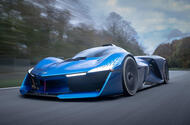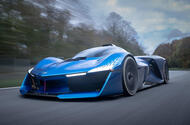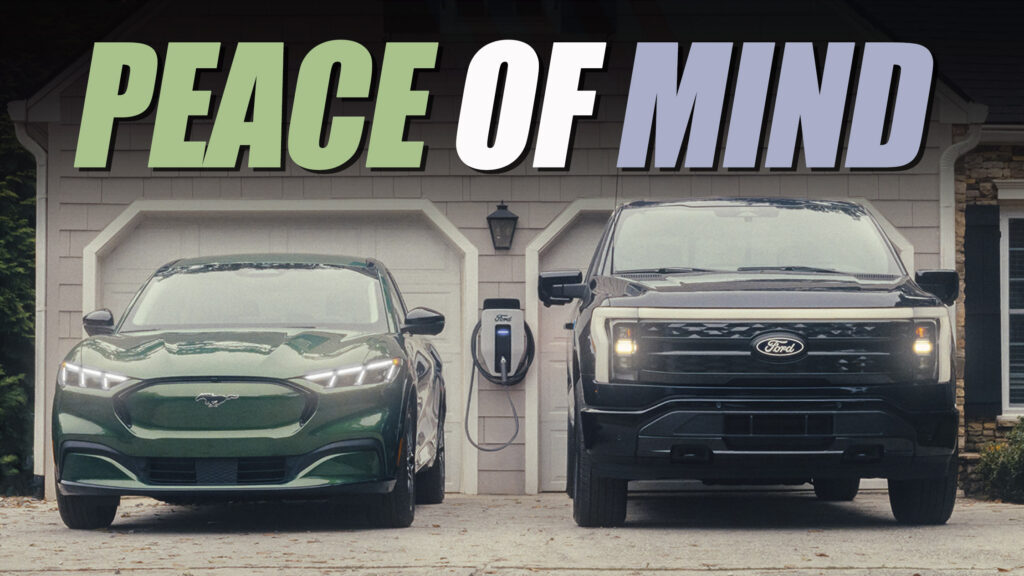News
Alpine’s Vision: The Future of Supercars at Hypertech R&D Center

Hydrogen-powered Alpenglow hypercar concept could give clues to future supercarCar will be developed at new EV R&D base, named Hypertech Alpine
French car maker Alpine has confirmed plans to launch a supercar – and it is expected to be an EV.
The car is currently being referred to as the Future Alpine Supercar. The brand has not released any further details, except that the car will be developed at a new state-of-the-art research and development centre that will open later this year.
This R&D base, named Hypertech Alpine and located at the Viry-Châtillon Formula 1 engine facility to the south of Paris, will focus on work into future EV technologies.
This includes the development of the brand’s sports car batteries to be used by the likes of the upcoming A110 EV, as well as next-generation ultra-high density cells to be used in future solid-state packs. The latter will be tested in “extreme operating conditions for supercar-type applications”, said Alpine.
Next-generation and ultra-efficient electric motors will also be developed with Ampere, Renault’s new EV and software arm.
This suggests the new supercar will be electrically powered, and used to showcase Alpine’s future EV tech, rather than a production version of the brand’s Alpenglow concept, which is powered by a hydrogen V6 powertrain.
That low-slung, technologically advanced hypercar concept could, however, give clues to the design of the future supercar. Alpine design chief Antony Villain previously told Autocar the concept - an evolution of the Hy4 concept – was created with a production car "in mind".
The new hub will also bring the firm’s motorsport divisions under one roof, including its WEC, Dakar, and F1 teams.
Alpine confirmed that this meant engine development for the Alpine F1 team would cease at the site from the end of the 2025 season. The site has built F1 engines since Renault entered the sport in the 1970s. No replacement supplier has yet been announced.
"Creating this Hypertech Alpine centre is key to Alpine's development strategy and, more broadly, to the group's innovation strategy,” said Alpine CEO Philippe Krief.
“It is a turning point in the history of the Viry-Châtillon site, which will ensure the continuity of a savoir-faire and the inclusion of its rare skills in the group's ambitious future while strengthening Alpine's position as an 'innovation garage'.
“Its racing DNA remains a cornerstone of the brand. It will continue to fuel an unprecedented industrial and automotive project, thanks particularly to Hypertech Alpine.”
Amazon Driver Fired for Participating in Illegal Sideshow in Sacramento

Alpine’s Future Supercar: A Leap into Electric Innovation

Hydrogen-powered Alpenglow hypercar concept could give clues towards future supercarCar will be developed at new EV R&D base, named Hypertech Alpine
French carmaker Alpine has confirmed plans to launch a supercar - and it is expected to be an EV.
Currently just named the Future Alpine Supercar, the french brand has not released any further details, bar that it will be developed at a new state-of-the-art research and development centre that will open later this year.
This R&D base, named Hypertech Alpine and located at its Viry-Chatillon F1 engine facility to the south of Paris, will focus on work into future EV technologies.
This includes the development of the brand’s sport car batteries to be used in the upcoming A110 EV, as well as next-generation ultra-high density cells to be used in future solid state packs - the latter will be tested in “extreme operating conditions for supercar-type applications”, Alpine said.
Next-generation and ultra-efficient electric motors will also be developed with Ampere, Renault’s new EV and software company.
This lends to the idea the new supercar will be electrically powered, and used to showcase the brand’s future EV tech, rather than a production version of the brand’s Alpenglow concept which is powered by a hydrogen V6 powertrain.
The hub will also bring the firm’s motorsport divisions under one roof, including its WEC, Dakar, and Formula One teams - the latter also boasting a new technical development division. F1 engines will no longer be made there.
"Creating this Hypertech Alpine centre is key to Alpine's development strategy and, more broadly, to the group's innovation strategy,” said Alpine CEO Philippe Krief.
“It is a turning point in the history of the Viry-Châtillon site, which will ensure the continuity of a savoir-faire and the inclusion of its rare skills in the group's ambitious future while strengthening Alpine's position as an 'innovation garage'.
“Its racing DNA remains a cornerstone of the brand. It will continue to fuel an unprecedented industrial and automotive project, thanks particularly to Hypertech Alpine.
Ford’s Power Promise: Simplifying Electric Vehicle Ownership with New Incentives

Aston Martin Adjusts Sales Forecast Amid Supply Chain Challenges and Leadership Changes
 Former Bentley boss Adrian Hallmark claimed 7000-car target would have required “near-perfect execution”
Former Bentley boss Adrian Hallmark claimed 7000-car target would have required “near-perfect execution”
New Aston Martin CEO Adrian Hallmark has made his first big impact on the company since joining on 1 September by reducing its ambitious sales forecast for 2024 by 1000 units.
Aston Martin cited supply chain disruption, weak demand in China and excess stock in dealers for the downgrade. It also said it would no longer be cashflow-positive (a measure of profitability) in the second half of the year, another change in guidance.
As recently as 28 July, the British company forecast a dramatic rise in wholesales (sales to dealers) for the second half of 2024, fuelled by a quick ramp-up of production of the new DB12, Vantage, new Vanquish and recently overhauled DBX SUV.
The promised “high single-digit-percentage growth” in wholesales this year from the 2023 total of 6620 would have meant sales climbing past 7000 for the first time since 2007 – the only year in which Aston Martin has cleared that hurdle.
However, Aston Martin, under the new leadership of former Bentley boss Hallmark, has now lowered that sales forecast to what effectively will be just over 6000 – back to 2021 levels and below last year’s figure of 6620 (the highest for 10 years).
Hallmark said the original production and sales plan, formulated before he arrived, would have required “near-perfect execution”.
The previous plan to replace sales lost in the first half due to the model changeover had been criticised as overly ambitious by some industry observers. “The wholesale growth target looks like a major stretch,” opined specialist luxury car business publication SSO Report on the company’s first half results.
Aston Martin had struggled to ramp up production of the DB12 last year, due to software integration problems, and is now facing serious supplier issues, according to Hallmark.
It previously said it was only building the DB12 in the first half of this year as it cleared the decks for the new models.
Aston Martin didn’t single out any supplier, but Hallmark referenced the shortage of automotive-grade aluminium following summer floods in Switzerland that has hit both JLR and Porsche. Aston Martin was also a customer of the now-insolvent Recaro, the seat supplier said.
Currently a “double-digit percentage” of cars rolling off Aston Martin’s production lines in St Athan and Gaydon are lacking parts that need to be fitted at a later date, Hallmark told analysts on a call today. “It's not lost production, but we cannot cope with the volumes of rework at any given point in time,” he said.
The new CEO said that he had costed the accelerated production schedule for the new models along with the attendant logistics and found it “significant”.
The plan now is to bring the new models up to speed more gradually. “We will ensure that we have a plan which allows us to flow smoothly, work on cost optimisation and on the quality processes to give ourselves a much more balanced business model," Hallmark said.
Aston Martin still intends to start production of the new Vanquish in 2024 as planned, however. “We will get good volumes of Vanquish going into the markets before the year end,” Hallmark said.
He cautioned, however, not to expect “huge numbers” going to the US - traditionally Aston Martin’s largest market but down 40% in the first half of 2024.
The company can expect an easier ride financially in 2025, Hallmark said, given the lack of “huge” model launch costs incurred this year and only “minor” launch activity. “If you normalise the expenses, then the potential is really clear,” he said.
He also indicated that Aston Martin’s overall costs were too high. “I've already been looking in depth at the relative cost structures and earning potentials versus other benchmarks,” he said. “Let's just say there's room for growth.”
Hallmark's decision to hit the brakes at Aston Martin recalls his early tenure as Bentley CEO in 2018. He immediately killed any idea of a Bentley sports car and reportedly axed development of a Bentley version of the Porsche Taycan and Audi E-tron GT.
He also slowed down the rollout of the newest versions of the Continental GT and Flying Spur in order to more effectively adapt their sports-optimised Porsche Panamera platform to a more luxury level.
At Aston Martin, Hallmark no longer answers to Volkswagen Group bosses. However, as it's a listed company, any downgrades in guidance are immediately felt in the share price on Monday, which dropped 22%.
Investors have been promised a growth story from majority owner Lawrence Stroll off the back of the model renewal, but global headwinds make it hard to return the loss-making company to consistent profitability.
